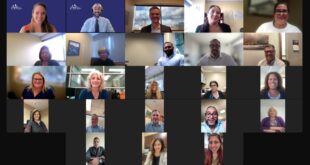There are two pieces of legislation being considered in Congress that stand to make a significant difference in the lives of millions of people with disabilities.
One piece of legislation, just introduced, would make changes to the Supplemental Security Income (SSI) program. In order to understand the proposed changes, let’s first take a look at the current SSI program.
SSI is a federal government program that provides means-tested financial support for low-income people with disabilities (both children and adults) and low-income people over 65. There are currently over 7 million people with disabilities receiving SSI. In 2014, the maximum allowable monthly SSI payment is $721 for an individual and $1,082 for a couple, although many states contribute an additional sum for their state’s residents, so actual payments might be somewhat higher. The average monthly payment is $535. For about 60 percent of beneficiaries, SSI is their only source of income.
SSI beneficiaries can have no more than $2,000 in cash or liquid assets at any time without losing their benefits, nor are they allowed to receive any financial, food or housing support from family or friends. That $2,000 limit hasn’t been raised in 25 years, nor has the limit on the amount of income an individual can earn.
A bill just introduced in the Senate–called the Supplemental Security Income Restoration Act–would increase the assets limit from $2,000 to $10,000, boost the amount of income that beneficiaries could earn without losing their benefits, and remove the prohibition against support from family and friends. These provisions would also be indexed to inflation, ensuring that they automatically keep up with future economic changes instead of waiting for Congress to get around to it.
The other piece of legislation–called the Achieving a Better Life Experience Act, or ABLE–that has bi-partisan support in both the House and Senate, would make changes to the IRS tax code to allow people with disabilities to set up special tax-free savings accounts for qualified expenses. Qualified expenses include medical and dental care, education, community based supports, employment training, transportation, assistive technology and housing.
Individuals could save up to $100,000 in an ABLE account without it being counted against the eligibility asset limits of any federal program, such as Social Security or Medicaid, thus eliminating some of the barriers to work.
If enacted into law, these two bills would make a big difference in the lives of low-income people with disabilities. I think I’ll call my representatives.
 Computer Technologies Program The Bridge to a Career
Computer Technologies Program The Bridge to a Career




